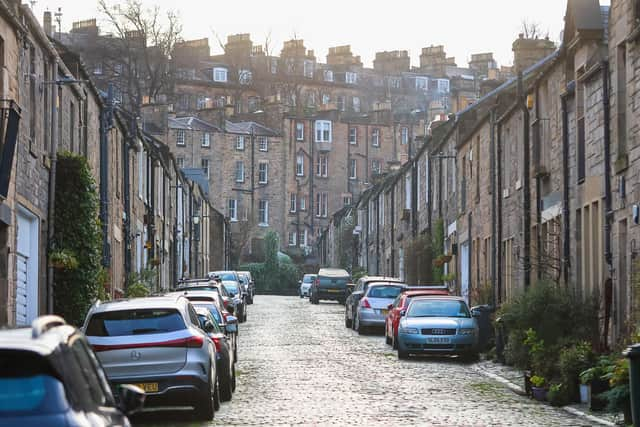Rent Scotland: Almost 22,000 rental properties removed from market amid 'anti-landlord rhetoric', research claims
Almost 22,000 rental properties may have been removed from the market in Scotland in the past year, research has revealed, with “anti-landlord rhetoric” from the Scottish Government cited as a reason for the drop.
The Scottish Association of Landlords (SAL) said such rhetoric, combined with “short-term, ineffective policies” from ministers, was “harming investment in private rented housing in Scotland”.
Advertisement
Hide AdAdvertisement
Hide AdThe comments came as a survey of SAL members carried out in December revealed that they had removed an average of 6.4 per cent of their properties from the private rental sector last year. If this reduction was replicated across the sector, some 21,760 homes will have been removed, SAL calculated.


When asked about their reasons for planning to remove homes from the sector, 83 per cent of those surveyed highlighted a “perceived hostility towards landlords from government/politicians”.
Meanwhile, three quarters (75 per cent) expressed concern about rent controls, with a similar number (74 per cent) saying increasing regulation in the sector was a reason for their decision.
The SAL said the fall in the number of available properties to let was the biggest factor contributing to rent hikes, adding it was contributing to Scotland’s “ongoing housing crisis”.
It also warned the situation could get worse. The SAL membership survey found more than half (56 per cent) of landlords were planning to reduce their portfolios during 2024 – up from 44 per cent who said they were looking to reduce the number of properties they had last year.
Meanwhile, fewer than one in ten landlords (9 per cent) were planning on taking on more properties, compared to 13 per cent a year ago. It comes after the Scottish Government brought in legislation to introduce a rent freeze in 2022 in response to the cost-of-living crisis.
These measures, which are due to end this April, were later relaxed to allow landlords to increase rents by 3 per cent, with this rising to 6 per cent in some circumstances.
The emergency legislation, which was passed by Holyrood, also placed a ban on evictions from being carried out in most situations. With the legislation coming to an end, tenants’ rights minister Patrick Harvie has announced plans to temporarily change the rent adjudication process until April 1, 2025.
Advertisement
Hide AdAdvertisement
Hide AdThis will allow landlords to charge rent increases of 6 per cent or less, provided the total rent is not more than market value. However, SAL chief executive John Blackwood said the situation in Scotland was “causing significant harm” as it was “reducing supply and driving up costs for tenants”.
Mr Blackwood said: “Landlords have been warning for the past few years that the combination of anti-landlord rhetoric along with short-term, ineffective policies are harming investment in private rented housing in Scotland. These chickens are now coming home to roost as landlords lose confidence and are choosing to exit the sector.
“This is reducing supply and driving up costs for tenants and causing significant harm. We have already seen a number of councils point to landlord exits as a reason for increased pressure on their own housing stock and this will only continue in the future.”
The Scottish Government has been contacted for comment.
Comments
Want to join the conversation? Please or to comment on this article.